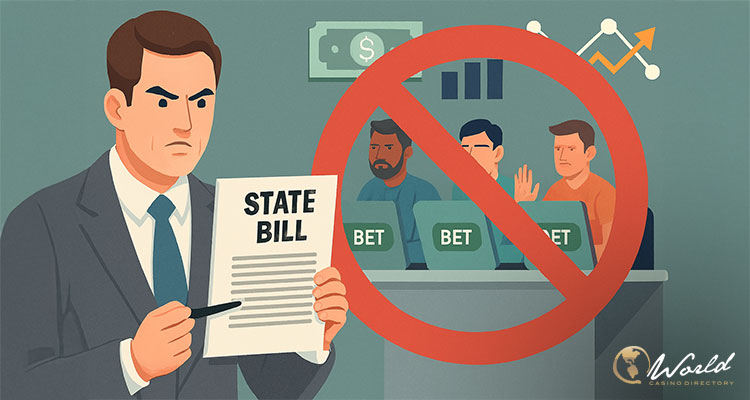New York lawmakers are advancing a proposal aimed at reshaping how sports betting platforms treat their customers. Assemblymember Alex Bores introduced Assembly Bill A09125, known as the Fair Play Act, which seeks to prohibit licensed operators from capping or reducing the size and frequency of deposits or wagers simply because a bettor has been successful.
The legislation directly targets a practice that has drawn criticism across the industry. While operators routinely accept bets from players who lose, many impose restrictions on those who consistently win. Some platforms reportedly reduce maximum wagers to just a few dollars, making it virtually impossible for winning players to continue.
If enacted, the bill would amend the state’s racing and wagering law to prevent operators from penalizing customers who achieve “financial benefit” through their wagering activity. The measure does, however, include exceptions for suspicious betting patterns and cases where problem gambling may be present.
Transparency Requirements for Operators
A major feature of the Fair Play Act is its push for transparency. Under the proposal, sportsbooks would be obligated to notify a bettor electronically within 24 hours of any limit or ban placed on their account. The notice must explain the nature of the restriction, its duration, and the reasons behind it.
If the restriction is linked to concerns over gambling addiction, the message must also include the state’s problem gambling hotline number. This provision is designed to address long-standing complaints that bettors are often left in the dark, receiving only vague or automated messages when limits are imposed.
The bill’s framework allows operators to protect against match-fixing, misuse of inside information, or other prohibited activity defined under New York law. At the same time, it requires clear accountability to customers.
National Context and Massachusetts Findings
New York is not alone in examining the fairness of bet-limiting practices. In Massachusetts, the Gaming Commission has been investigating the issue for months. Recent findings revealed that only 0.64% of Bay State bettors were restricted, but the majority of those impacted were players who consistently won.
Carrie Torrisi, sports wagering division chief for the Massachusetts Gaming Commission, explained that “players who demonstrate a tendency to win have their limits decreased, and players who demonstrate a tendency to lose have their limits increased.” Chair Jordan Maynard also noted that many customers face restrictions with “little to no justification or notification,” sparking calls for greater oversight according to InGame.
This broader debate underscores why New York’s proposal could set an important precedent. If successful, it may become one of the first laws in the U.S. to prevent sportsbooks from targeting bettors based on their success.
Previous and Competing Legislation
The Fair Play Act is not New York’s first attempt at regulating betting practices. Earlier this year, Assemblymember Robert Carroll introduced a bill that took a very different approach—capping bets at $5,000 per day per sportsbook and limiting deposits to five per day. That proposal also sought to curb advertising practices, including banning terms like “bonus bet” and prohibiting sportsbook ads during live games. However, Carroll’s measure did not gain traction during the last legislative session.
In contrast, Bores’s Fair Play Act is designed to expand betting freedom rather than restrict it. It would require operators to treat all authorized bettors equally, while still giving them the tools to intervene in cases of problem gambling or suspicious activity.
What Comes Next
The New York legislative session concluded on June 17, 2025, and will not resume until January 7, 2026. Bills introduced this year, including A09125, will carry over into the 2026 session for further discussion. If the proposal is ultimately passed, it would take effect 180 days after being signed into law, giving operators time to adapt their practices.
The Fair Play Act signals an emerging battle over fairness in sports wagering. Supporters argue that if operators are quick to take money from losing players, they should not shut out those who win. Critics, however, are expected to resist, claiming such restrictions are essential for risk management.
For now, the bill represents a growing effort in New York to balance consumer protection with operator interests, and to ensure that all bettors—winners and losers alike—are treated with transparency and fairness.



